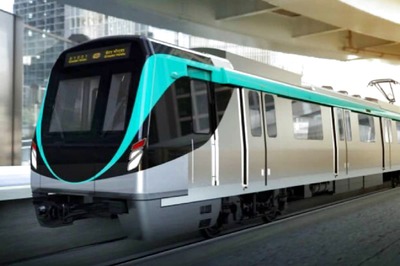
views
CANBERRA, Australia: China appeared to be expanding its network of secret detention centers in Xinjiang, where Muslim minorities are targeted in a forced assimilation campaign, and more of the facilities resemble prisons, an Australian think tank found.
The Australian Strategic Policy Institute used satellite images and official construction tender documents to map more than 380 suspected detention facilities in the remote Xinjiang Uyghur Autonomous Region, highlighting reeducation camps, detention centers and prisons that have been newly build or expanded since 2017.
The report builds on evidence that China has made a policy shift from detaining Uighurs and other Muslim minorities in makeshift public buildings to constructing permanent mass detention facilities.
This is despite Chinese state news agency Xinhua reporting late last year that trainees attending vocational education and training centers” meant to deradicalize them had all graduated.
Regional government chairman Shohrat Zakir was quoted as saying foreign media reports of 1 million or 2 million people attending these centers were fabricated.
Predominantly Muslim minorities in the remote Xinjiang region have been locked in camps as part of a government assimilation campaign launched in response to decades of sometimes violent struggle against Chinese rule. Some have been subjected to forced sterilization and abortion, and in recent months, ordered to drink traditional Chinese medicines to combat the coronavirus.
Australian Strategic Policy Institute researcher Nathan Ruser wrote in a report released late Thursday: Available evidence suggests that many extrajudicial detainees in Xinjiangs vast re-education network are now being formally charged and locked up in higher security facilities, including newly built or expanded prisons, or sent to walled factory compounds for coerced labor assignments.
At least 61 detention sites had undergone new construction and expansion work in a year to July 2020, the report said. These included at least 14 facilities still under construction this year.
Of these, about 50% are higher security facilities, which may suggest a shift in usage from the lower-security, re-education centers toward higher-security prison-style facilities, Ruser wrote.
At least 70 facilities appeared to have lesser security by the removal of internal fencing or perimeter walls, the report said.
These included eight camps that showed signs of decommissioning, and had possibly been closed. Of the camps stripped of security infrastructure, 90% were lower security facilities, the report said.
Disclaimer: This post has been auto-published from an agency feed without any modifications to the text and has not been reviewed by an editor



















Comments
0 comment